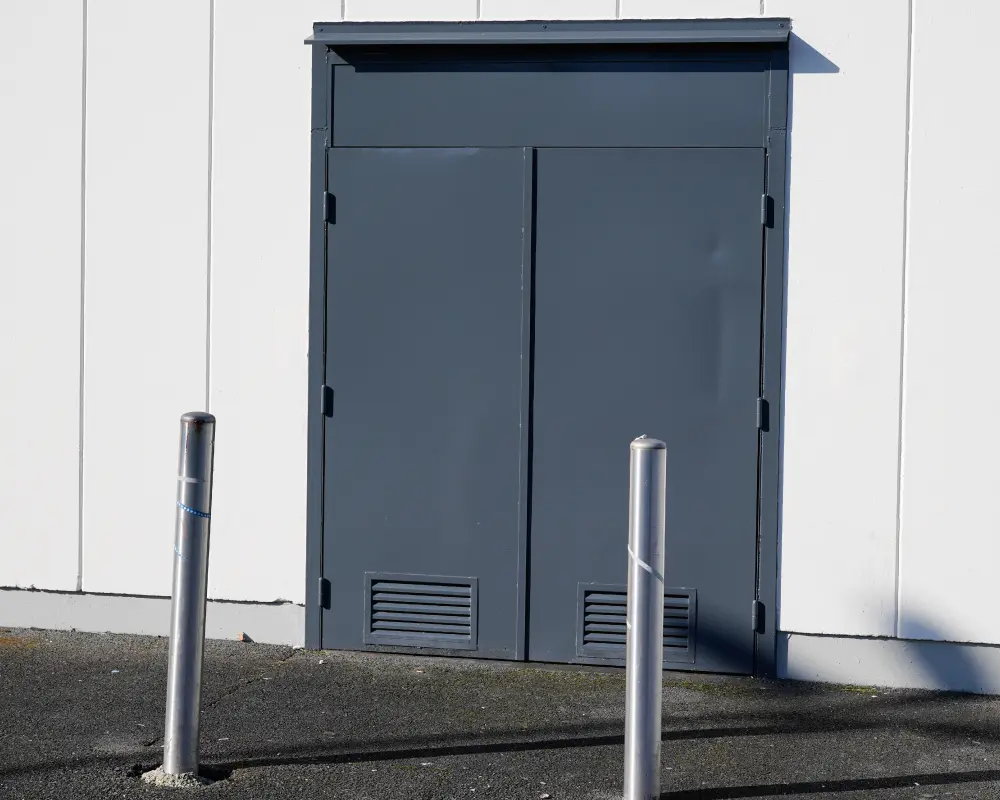
Why are fire doors important?
Fire doors play a pivotal role in building safety by providing critical protection against the spread of fire and smoke. These specialised doors are an integral part of a building’s passive fire protection system, making them essential for public safety and the preservation of property.
The Importance of Fire Doors
Fire doors help contain fires by compartmentalising the spread of flames and smoke, which is crucial for the safety of occupants and allows more time for evacuation. They are designed to withstand fire for a specified period, typically rated for 30, 60, 90, or 120 minutes. Properly installed and maintained internal fire doors can be the difference between life and death, preventing fires from spreading rapidly through a building and providing occupants vital minutes to escape.
Construction and Design of Fire Doors
Fire doors are constructed from various fire-resistant materials, including steel, glass, aluminium, and composite materials. They often feature a core of fire-resistant composite, such as gypsum or a timber compound, which can withstand heat and resisting fire penetration over a significant period. The integrity of a fire door is also enhanced by the inclusion of intumescent seals, which expand when exposed to heat to seal off the gaps between the door and its frame, thus preventing the passage of smoke and flames.
Fire Door Regulations
Compliance with fire door regulations is mandatory under building codes and fire safety laws. These regulations specify the minimum standards for fire resistance, installation, and maintenance of fire doors. For instance, in the UK, the Regulatory Reform (Fire Safety) Order 2005 requires that fire doors be properly installed and maintained to ensure they perform as intended. Similarly, in the United States, the National Fire Protection Association (NFPA) sets out guidelines for the installation and maintenance of fire doors.

Fire door regulations also dictate where fire doors must be installed. For example, internal fire doors are required in commercial buildings, multi-family residential buildings, and places where the risk of fire is higher, such as kitchens and laboratories. These regulations ensure that every fire door installed meets specific safety standards, helping to minimise the risk of fire injuries and fatalities.
Maintenance of Fire Doors
Maintenance is crucial for ensuring that fire doors function correctly. Regular inspections are necessary to check that the doors are free from damage, that all components such as hinges, latches, and seals are operational, and that the doors close correctly. Any gaps bigger than the thickness of a nickel are unacceptable as they allow smoke to pass through. It’s also important to ensure that fire doors are never propped open, as this negates their purpose and is often in violation of fire safety regulations.
Common Uses of Fire Doors
In commercial buildings, fire doors are commonly found in stairwells, corridors, and other areas that are part of the building’s escape route. In residential settings, especially in multi-family dwellings like apartments, internal fire doors are often installed in shared areas and between different sections of the building to contain fires within a compartment and prevent them from spreading to living areas.
Why Choose Fire Doors for Your Building
The choice to install fire doors is driven by the need to protect property and lives. In the event of a fire, a well-functioning fire door can keep the path to exit routes clear of smoke and flames, significantly enhancing the occupants’ chances of escaping safely. Additionally, for property owners, installing fire doors can help reduce damage to the building and potentially lower insurance premiums by meeting and exceeding the required safety standards.
The significance of fire doors in building safety cannot be overstated. They are a critical first line of defence against the spread of fire and smoke, providing essential protection that can save lives and reduce property damage. Adherence to fire door regulations ensures that these doors will function as expected in an emergency, offering peace of mind to building owners and occupants alike. For anyone responsible for the safety of a building, ensuring the proper specification, installation, and maintenance of fire doors is not just a regulatory obligation—it is a moral one.
Follow us on Facebook and LinkedIn, or read more posts here.